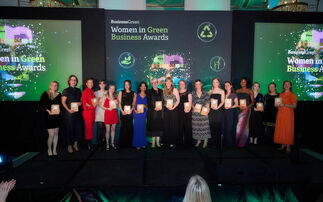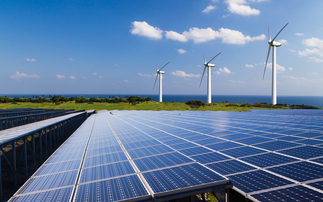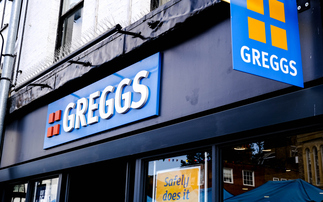The collaboration and partnership at the heart of SDG 17 can is crucial to building back better after Covid-19, argues We Mean Business CEO Maria Mendiluce
The call for strengthened global partnership in Sustainable Development Goal 17 could not be more important as the world seeks the best way to recover from the current coronavirus crisis.
The pandemic is the greatest example in recent history of a time when the global population is living, simultaneously, through a shared experience. It shows us what we have in common as humans while highlighting our shared vulnerability. It also underscores the differences between us and has inspired an unprecedented sense of community, adaptability and collaboration. It shows more than ever before that no single individual, organisation or government can find a way out of this - it has to be done in partnership.
A good example of this collaboration is how businesses have been stepping up to the challenge that Covid-19 has presented, adapting their products and services to meet the new needs of their customers, employees and other stakeholders. Producing ventilators, launching home deliveries, setting up working from home, offering mental health support, redeploying staff - the list is endless but there are two common factors - collaboration and innovation.
It's a crisis that has shown our vulnerability and confirmed our under-estimation of the probability and exponential nature of systemic risks. It calls on all of us to come together in partnership with compassion and humility. As governments develop longer-term economic stimulus packages to combat the crisis, they must be designed collaboratively around the core principle of building a stronger economy that ensures the long-term health and wellbeing of citizens, job creation, tackling climate change once and for all, and building a more resilient and inclusive society. We cannot go back to business-as-usual and lock in old habits, pollution, spending and infrastructure that will inflict further harm on the very people, communities and economies that these stimulus packages seek to support.
In terms of partnership - many of the companies that the We Mean Business coalition works with are already used to collaborating through their efforts to reduce their greenhouse gas emissions. It is clear to them that to achieve the goal of limiting global temperature rise to 1.5C, collaboration is essential and a key part of this is both business to business partnerships to drive innovation and increase policy ambition as well as collaborations with governments to drive 'ambition loops' - both of which result in increased action on climate.
In recent weeks we have seen multiple cases of companies collaborating with each other to make joint calls for governments to 'build back better'. The European Alliance for Green Recovery saw 37 CEOs of Europe's biggest global companies join ministers from 11 countries, business associations and trade unions to call for a green recovery in Europe. These included European power companies Iberdrola, Enel and EDP; retailers H&M and Inter IKEA Group; and three of the world's largest consumer goods brands, Unilever, AB InBev and Nestlé; along with 22 financial institutions.
At the launch of the Petersberg Climate Dialogue in Germany, a group of 68 companies from a wide range of sectors called for governments to ensure compliance with the Paris Agreement during the stimulus response to the coronavirus. The signatories included global cement producer HeidelbergCement, logistics giant Deutsche Post DHL Group and power utility Vattenfall.
And a group of nine companies committed to The Climate Group's EV100 initiative have called on the President of the European Commission, Ursula Von der Leyen, to push ahead with 2020 CO2 targets for cars, vans and trucks, despite lobbying attempts for a delay in the wake of the coronavirus outbreak.
In May, a coalition of 40 global companies, led by the Energy Transitions Commission and including renewable energy majors Iberdrola and Orsted, called on governments to support "a massive wave of investments in renewable electricity" as part Covid-19 recovery plans. And most recently Over 150 global corporations, which are all part of the Science Based Targets initiative and with a collective market capitalisation of over $2.4tr, are urging governments to align their Covid-19 economic aid and recovery efforts with climate science, to reach net-zero emissions well before 2050.
As countries and businesses fight Covid-19, it is critical that the multiple voices from governments, businesses and society that are calling to build back better join forces, strengthen their partnerships and build a more resilient economy, together. Returning to business as usual is not sustainable, it is therefore no longer an option.
Through the collaboration and partnership that is at the heart of the all the SDGs, but particularly SDG17, they can ensure that stimulus packages are invested in clean solutions that will bring more jobs, competitiveness, and growth, solutions that reduce potential future systemic risks derived from climate change. Solutions that will reduce the impact on health and improve the wellbeing of people and planet for the long-term.
Maria Mendiluce is CEO of the We Mean Business coalition








